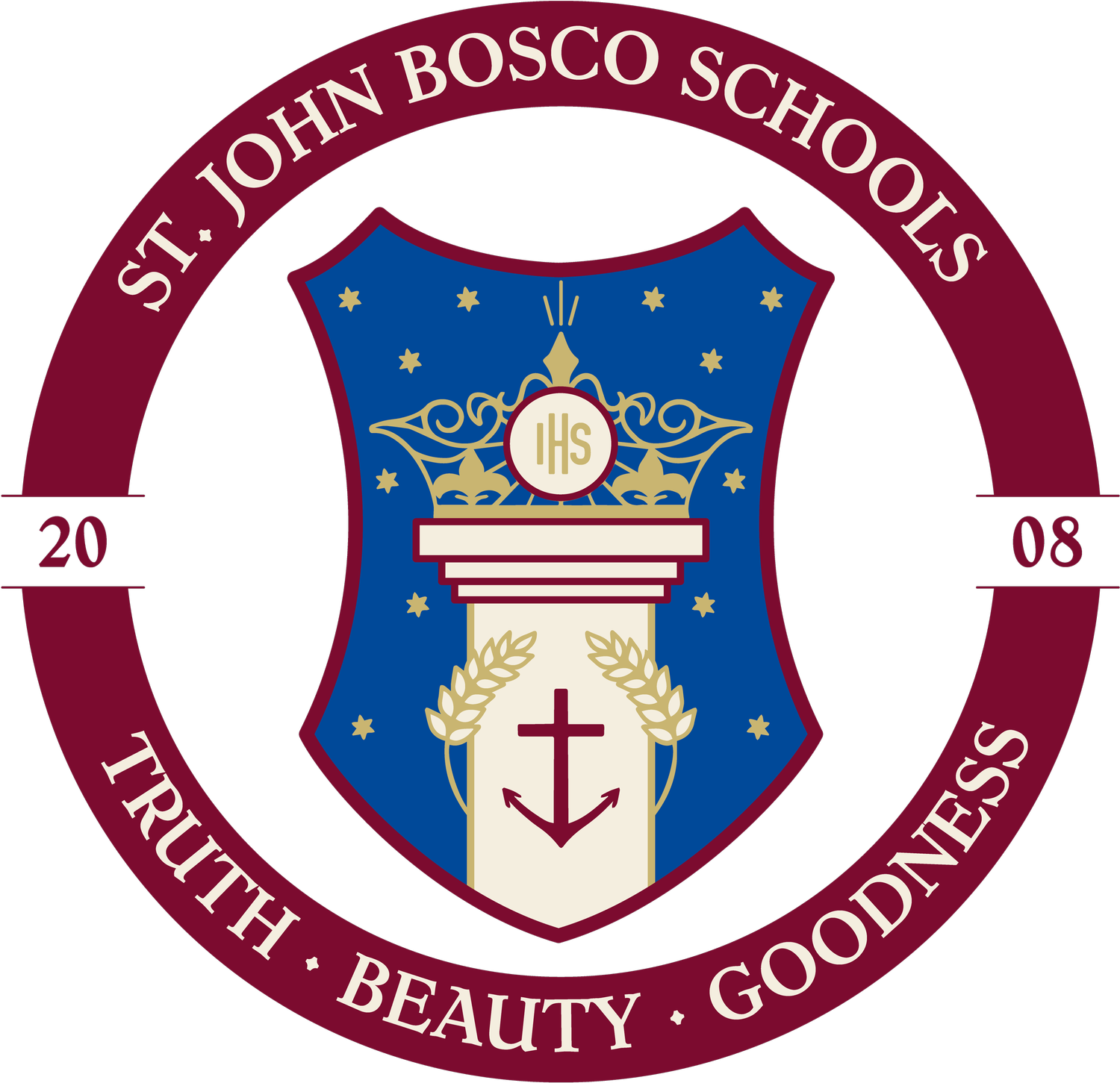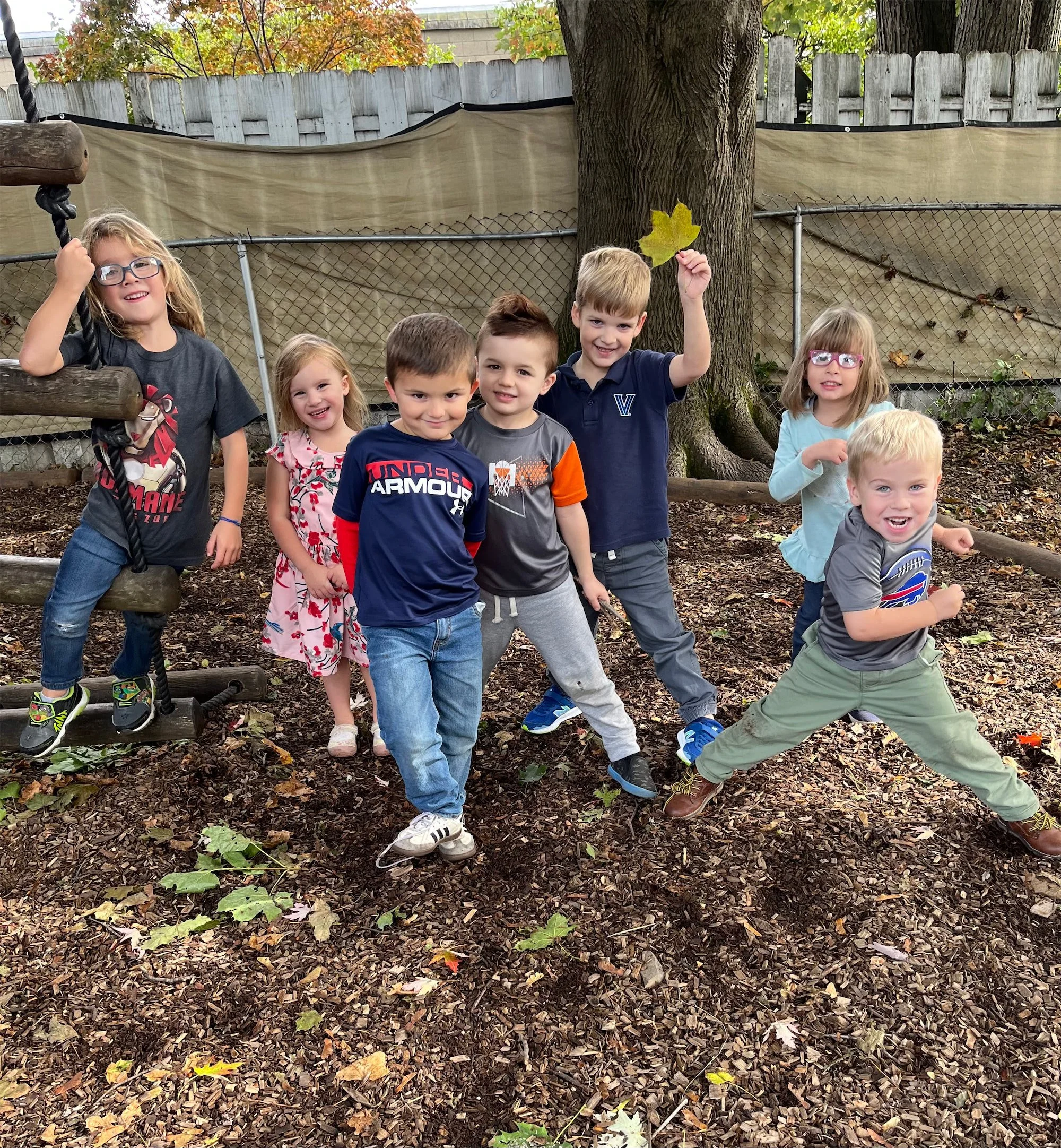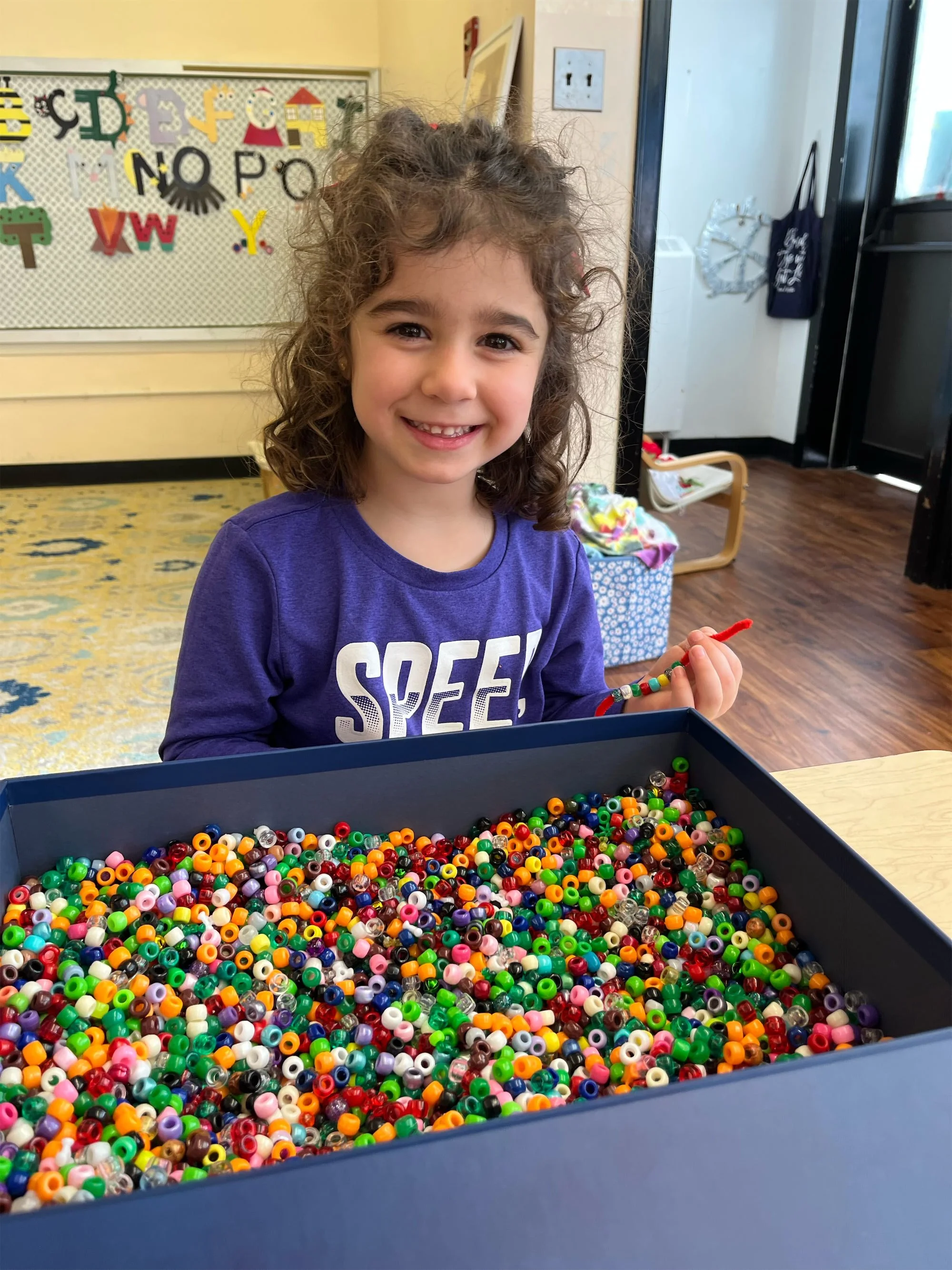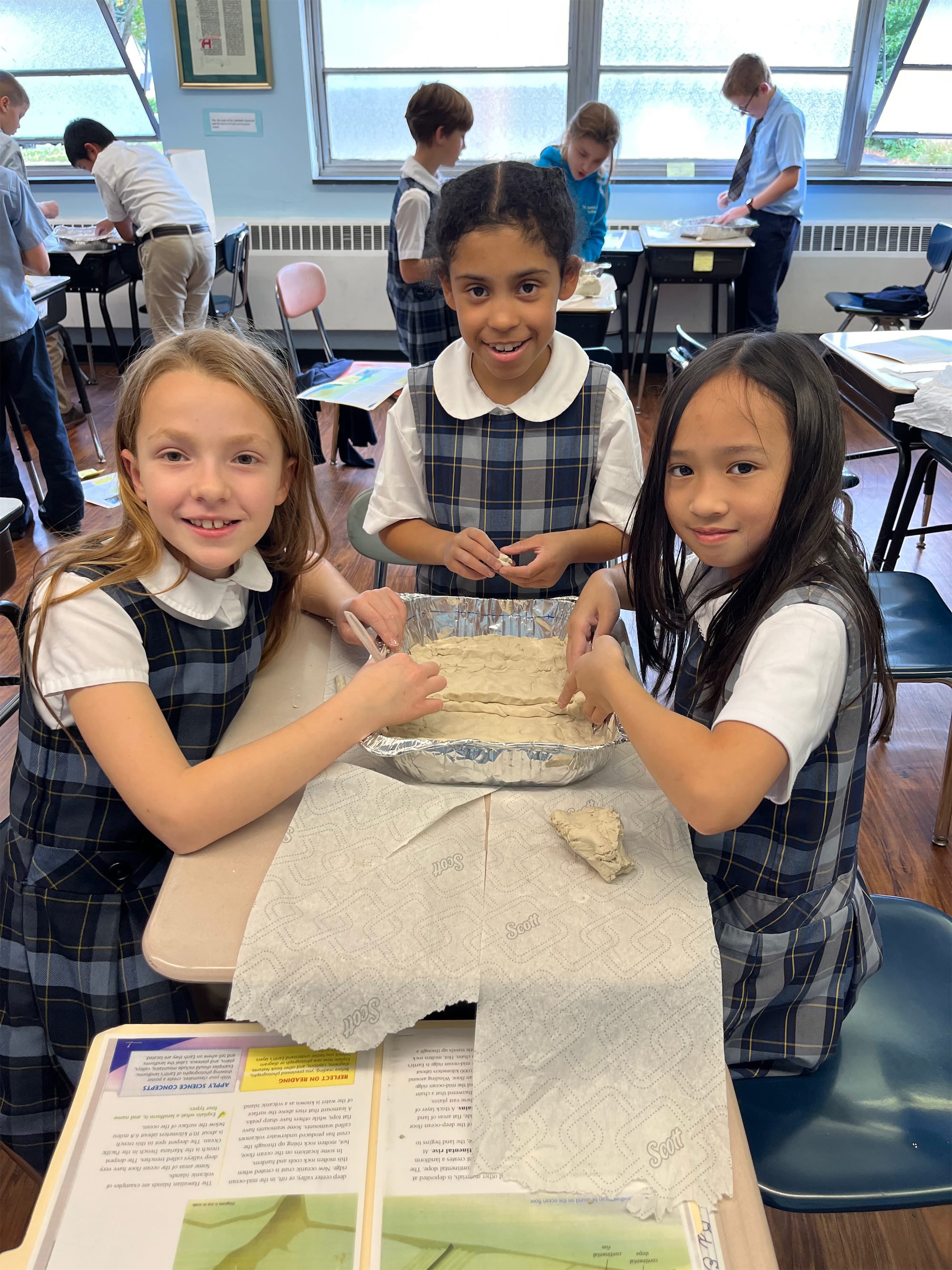St. John Bosco Schools’
Educational Model
Classical liberal education lays the foundation that leads to wisdom and virtue. Wisdom is to know the truth; virtue, to imitate the truth. Through this formation, children begin to connect what they know with how they live, to strive for excellence and holiness.
St. John Bosco Schools’ integrated curriculum:
Cultivates wonder, formation in virtue, and nurtures the moral imagination
Allows children to explore ideas, events, and individuals in the context of the history of Western civilization
Encourages children to draw connections between different subjects, leading them to understand holistically
Inspires children by immersing them in the truth, beauty, and goodness of God’s creation
Teaches children how to think deeply and express ideas in an organized and precise way
An Integrated Curriculum
-

History
Students should understand human culture and history itself as the lived answer to fundamental human questions and the human desire for God.
-

Religion
Religion is not just one subject within the curriculum, but the key to its unity and integration. The cosmos is an ordered, unified whole because it is created in Christ “in whom all things hold together” (Col. 1:17).
-

Art
The study of art and the practice of rendering should be used to train children how to attend closely to detail, to study shape and proportion, in short, how to see both art itself and the objects depicted by it.
-

Language Arts
We want students to “read well, speak well, and think well.” This means that we want them to understand and internalize how language works both at the level of individual words, but also the parts of speech.
-

Nature Studies
The study of nature should train the student above all to see nature through the eyes of love and to respect its inner integrity. This must be the foundation on which all further specialized study in the sciences is based.
-

Mathematics
The study of mathematics should instill in students an ever-increasing sense of wonder and awe at the profound way in which the world displays order, pattern and relation.
-

Music
The study of music should be to the sense of hearing what the study of art is to the sense of sight. It should cultivate the power of that form of attention known as listening.
-

Physical Education
Play, like joy, is its own end. In the sheer joy of play and playing well, one becomes an ‘amateur’ in the true sense, that is, a 'lover'. The amateur, though he always strives to play well, plays out of love and delight for the game itself.
✶
“The goal of education is the student himself, to form his mind and his character in such a way that he can live his whole life, so far as possible, in a way that is consistent with the truth about himself as a human being created in the image and likeness of God."
—The St. Jerome Curriculum Group
Curriculum Stages
-

Lower Grammar Stage (K-2)
Kindergarten: The Cradle of Civilization Year
Grade 1: The Greek Year
Grade 2: The Roman Year -

Upper Grammar Stage (3-5)
Third Grade: The Medieval Year
Fourth Grade: The Modern Year
Fifth Grade: The American Year -

Logic Stage (6-8)
Sixth Grade: The Ancient Year
Seventh Grade: The Christendom Year
Eighth Grade: The New World Year
Pre-Kindergarten Program
The Fairy Tale Year
For four year olds, we offer the following options:
3 half-day morning sessions (W,TH,F)
5 half-day morning sessions
3 full-day sessions (W,TH,F)
5 full-day with Catechesis of the Good Shepherd
Catechesis of the Good Shepherd only (3's and 4's) - Fridays 12:30-2:30
Morning sessions will begin at 8:30am and will dismiss at 11:30am. Afternoons will dismiss at 2:45pm.
Pre-K children at SJBS will have Library time each week as well as PE and Music Class.
The children will join the whole school community for Holy Mass every Friday.
On Friday afternoons, the children spend the afternoon in our beautiful Atrium, building a closer relationship with Jesus and learning about some of the greatest mysteries of our faith during Catechesis of the Good Shepherd.
A Day in the Life of Pre-K at SJBS
8:30 Arrival
8:35 Morning prayer with Pledge of Allegiance
8:45 Calendar Time: We focus on our seasons, months, days of the week, patterns, and weather
9:00 Faith: Our lesson examines the fundamentals of our faith beginning with creation. We come to know that God made all things, including us, good. We memorize simple passages of scripture together while reading from the Holy Bible. We examine sacred art to come to know our Heavenly Father and Creator through the beauty in the art. “Beauty disposes us to the Divine, and sacred art helps lead students to love what is good, beautiful, and true.” We come to know how much God, our Father, truly loves us.
9:15 Math: Our Math program uses many manipulatives at this level to understand concepts such as patterns, one on one correspondence, and math stories (simple adding and subtracting).
9:30 Phonics: We provide an introduction to letters and sounds using songs and games. We work on the beginning stages of being “reading ready”.
9:40 Handwriting: We work on our letter formation and handwriting. We begin by learning how to hold a pencil and work on writing our name. We practice our name every day that we are in school!
9:45 Snack
10:00 Music & Poetry: We love to rhyme and sing! We use the classic Mother Goose Rhymes. The child has a natural interest in rhyming and songs.
10:10 Literature: There is so much to gain from even the simplest of books for our youngest students! It is important to begin to teach our young students to be highly conscientious and discerning readers right from the start. We study one book each week closely.
10:20 Craft: Our craft relates to the Literature that we are studying for the week. We work on scissor skills and following directions. From the first day of school, their craft is their own work. They complete it with little to no assistance. In this way we can watch the progress that is made from the beginning of the year to the end.
10:35 Recess! We aim to go outside every day no matter the weather!
11:15 Grace & Etiquette: We begin the year by focusing on the Salesian way and what each part means for us in PreK. Next, we work on simple grace and etiquette lessons such as being obedient to our parents, kind to our siblings, and using good manners.
11:25 Prepare to go home and dismissal for half-day students
11:35 Lunch with our friends
12:00 Quiet time: Students choose their favorite books from around our classroom to look at for a small respite.
12:20 Nature Studies: Our Nature Studies program helps the children to observe the world around them that God created. We go on Nature Walks every week to discover a particular topic we are studying. These Nature Walks allow us to encounter God’s creation which is essential. “For young children, time spent sniffing the clean air after a rain or chasing after a playful squirrel is real science education and lays the groundwork for later studies.”
12:55 Free Time (outside again if weather permits!) or inside with Montessori Practical life materials
1:35 Music/PE/Library
2:10 Art Theory: The young child seeks true beauty in art. We study one painting over the course of 2 weeks to help build the child’s appreciation for art. The children learn a simple rhyme, use extension activities, and discover similar paintings from the same artist. “While these images may not immediately represent our current culture, time-period, or place, they do invite us to a deeper contemplation of the universal nature of beauty, and thus, God Himself, who is Beauty, Truth, and Goodness.”
2:30 Closing Prayer
2:40 Prepare to go home (working on independence)
2:45 Dismissal
Our Education Plan
Take a deep dive into the principles and foundations of the St. Jerome Education Plan.
Grade Level Descriptions
-
The Cradle of Civilization Year
Kindergarten students learn about the development of the earliest civilizations, such as Egypt and Mesopotamia, as well as the history of the Israelites during Biblical times. The study of early cultures helps children as they begin to develop a geographical and historical understanding of the world.
-
The Greek Year
First grade students learn about Ancient Greece and its lasting influence on Western Civilization in literature, history, science, math and the arts. In the Greeks, we find a love of wisdom, which is philosophy, and a quest for what constitutes the good life, which is virtue. Students read Aesop's Fables and discuss virtues and morals. They read The Adventures of Odysseus, comparing the hero's journey and longing for home to man's yearning for God. Throughout the stories of literature and history, first graders begin to discern and cultivate what is true, what is good and what is beautiful.
-
The Roman Year
Second graders discover the beginnings of Rome and learn how different styles of leadership, law and government have influenced history through the present day. The Romans engineered beautiful architecture and fostered the arts. They valued and developed the art of persuasive public speech. Most important, it was within this place and time, within the broad reach of the Roman Empire, that God chose to send his only-begotten Son into the world. Our curriculum identifies the Incarnation as the central point in human history.
-
The Medieval Year
Third graders are immersed in the Medieval world, an era when faith and reason were united, and God was central to the human experience. They learn about the structures of feudal society, the role of monasteries in preserving the faith, and the construction of the great cathedrals with stunning mathematical proportions. Students are exposed to ideas such as chivalry, duty and honor, through the reading of epic stories and poems, including The Canterbury Tales and King Arthur and the Knights of the Round Table.
-
The Modern Year
Fourth graders study the period from the Renaissance to World War II, exploring the many tumultuous events that shaped the world in which we live. From exploration and rapid scientific discovery to religious upheaval, political revolutions, and world wars, students assess the characters and events of the last 500 years in the light of virtue while honing solid classical academic skills.
-
The American Year
Fifth graders learn about the discovery of the New World and the birth of our nation, with emphasis upon the ideals that fueled the America experiment. They study the lives and writings of the Founding Fathers, and commit to memory the language that captures these noble ideals.
-
The Ancient Year
In 6th Grade, students begin by studying the civilizations of the ancient Near East: Mesopotamia, Egypt, and the Ancient Israelites. As the year progresses, the classical civilizations of Greece and Rome are explored. It is within the context of the Roman Empire that the Incarnation takes place, and a heavy emphasis is placed on how the coming of Christ transforms history. The fourth unit of study, Christian Rome, examines the development of the early Church within the Roman Empire and the many virtuous saints who grew the Church amid turmoil and persecution.
-
The Christendom Year
Prior to 7th grade, students have gained an understanding of those classical cultures, Jewish, Greek, and Roman, which were the ingredients of a uniquely Christian society referred to as Christendom. Christendom would slowly begin to rise after the Fall of Rome and reach its height in the midst of the Middle Ages. This era of history saw the Catholic Church and its saints make invaluable contributions to Western civilization, many of which have lasted to this day.
-
The New World Year
The discovery of the American continents by Europeans was a monumental turning point in all of history. The outcome was the coming of Christianity to the Americas, as Catholic missionaries braved new lands to spread the Gospel message throughout the New World. Of course, the discovery of America also resulted in the birth of the United States. The history of our great nation is the focus of study in 8th grade, though not the only topic that is investigated. Other significant events in modern world history are examined.







